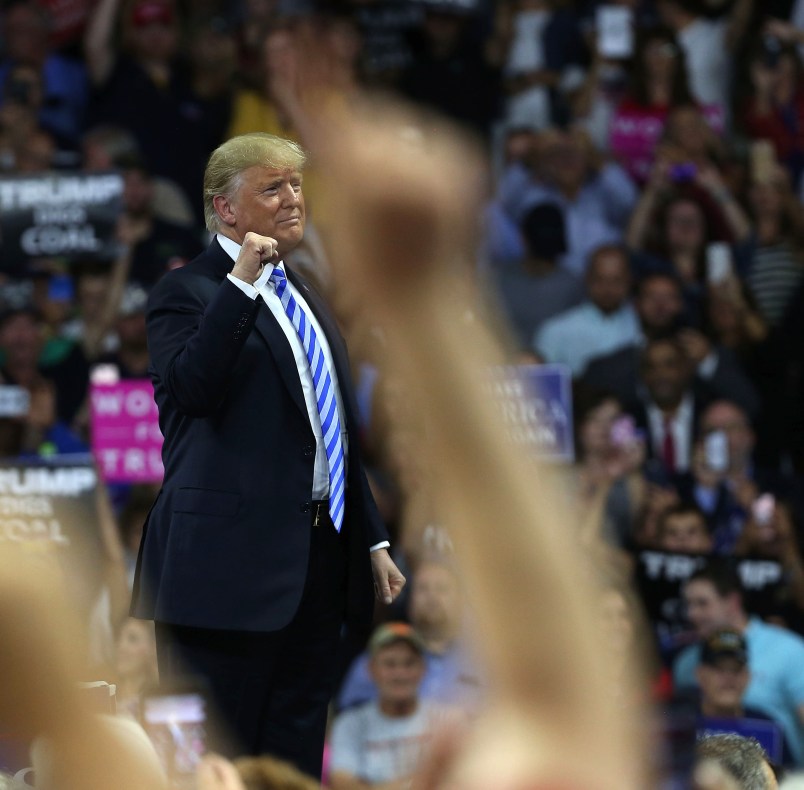A New York federal judge on Monday dismissed President Donald Trump’s bid to block a subpoena issued by the Manhattan District Attorney’s Office for eight years of his tax returns.
Personal attorneys for the President immediately filed a notice of appeal, sending the case to the Second Circuit Court of Appeals.
U.S. District Judge Victor Marrero described Trump’s argument that it’s illegal to investigate the President “extraordinary,” saying that it would lead to immunity for “any conduct, at any time, in any forum, whether federal or state, and whether the President acted alone or in concert with other individuals.”
Marrero went on to address the vast implications of Trump’s argument. A President immune from any kind of criminal process would, the judge wrote, “frustrate the administration of justice,” allowing “both the President and any accomplices to escape being brought to justice.”
Trump had based his argument in part on the notion that a criminal investigation would hinder the performance of a President’s duties to an unacceptable degree. But Marrero dismissed that concern, saying “certainly lengthy imprisonment upon conviction would produce that result” and that Trump’s “sweeping” theory lacked support in the Constitution.
The Manhattan federal judge also tried to place Trump’s argument in historical context, noting that the framers shunned “the concept of of the inviolability of the person of the King of England and the bounds of the monarch’s protective screen covering the Crown’s actions from legal scrutiny.”
Trump’s argument, in Marrero’s view, advances an argument that the country’s founders rejected “at the inception of the Republic” – that “not only the President, but, derivatively, relatives and persons and business entities associated with him in potentially unlawful private activities, are in fact above the law.”
Marrero added that the argument was “repugnant to the nation’s governmental structure and constitutional values.”
At multiple points in the opinion, Marrero also raised a question about Trump’s use of personal attorneys to litigate the case.
“The Court is not certain that attorneys privately retained by the person who is President can bring suit on behalf of the United States,” Marrero wrote.
Trump had argued that New York State courts would not afford him due process, and were biased against him as part of a political witch hunt. Marrero dismissed this as “prophecies that he will be indicted and denied due process,” calling the concerns “speculative and unripe.”
Undergirding Marrero’s ruling was a rejection of the Justice Department’s Office of Legal Counsel opinion that a sitting president cannot be indicted. Marrero surveyed the OLC memo, as well as previous opinions written by onetime Supreme Court nominee and conservative movement icon Robert Bork.
Marrero dismissed the view that a president is “not subject to criminal process” as relying on “scant and inconclusive” grounding in the Constitution. He struck out at the theory as not coming “from a real case presenting real facts” but rather “from an unqualified abstract doctrine conclusorily asserting a generalized principle.”
“No persuasive argument could be made that an indictment of the President while in office, along with the co-conspirators…would present the severe burdens and interferences with the discharge of the President’s duties that the DOJ memos interpose,” he wrote. “Balanced against the prospect of a number of powerful individuals going free and escaping punishment for serious crimes by virtue of the President asserting absolute immunity from criminal process, an alternative that would allow the indictment and prosecution to proceed under these circumstances may weight against recognizing a categorical claim of presidential immunity.”
Manhattan District Attorney Cyrus Vance had issued the subpoena in August. Trump sued in an attempt to block the demand last month.
Read the decision here:






